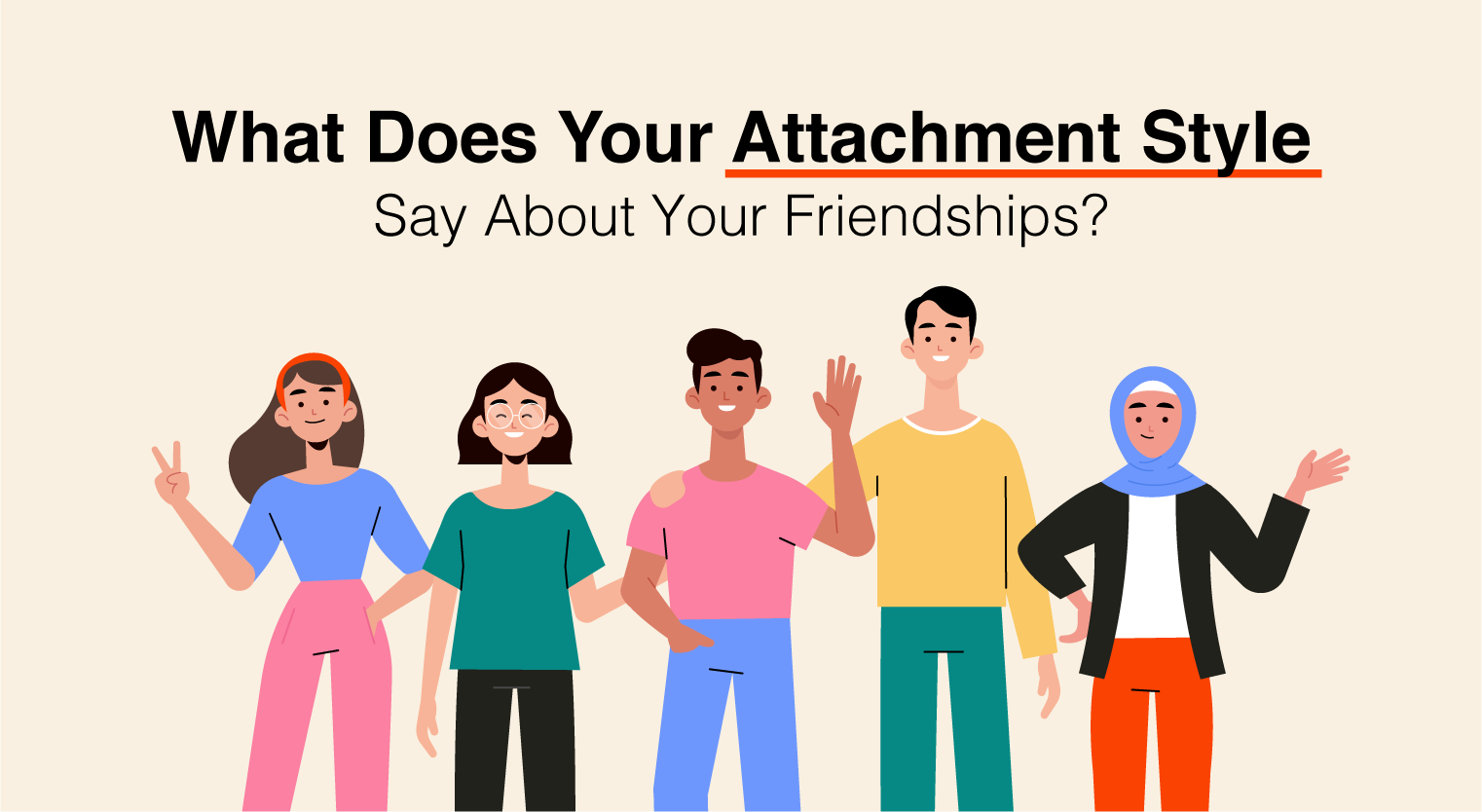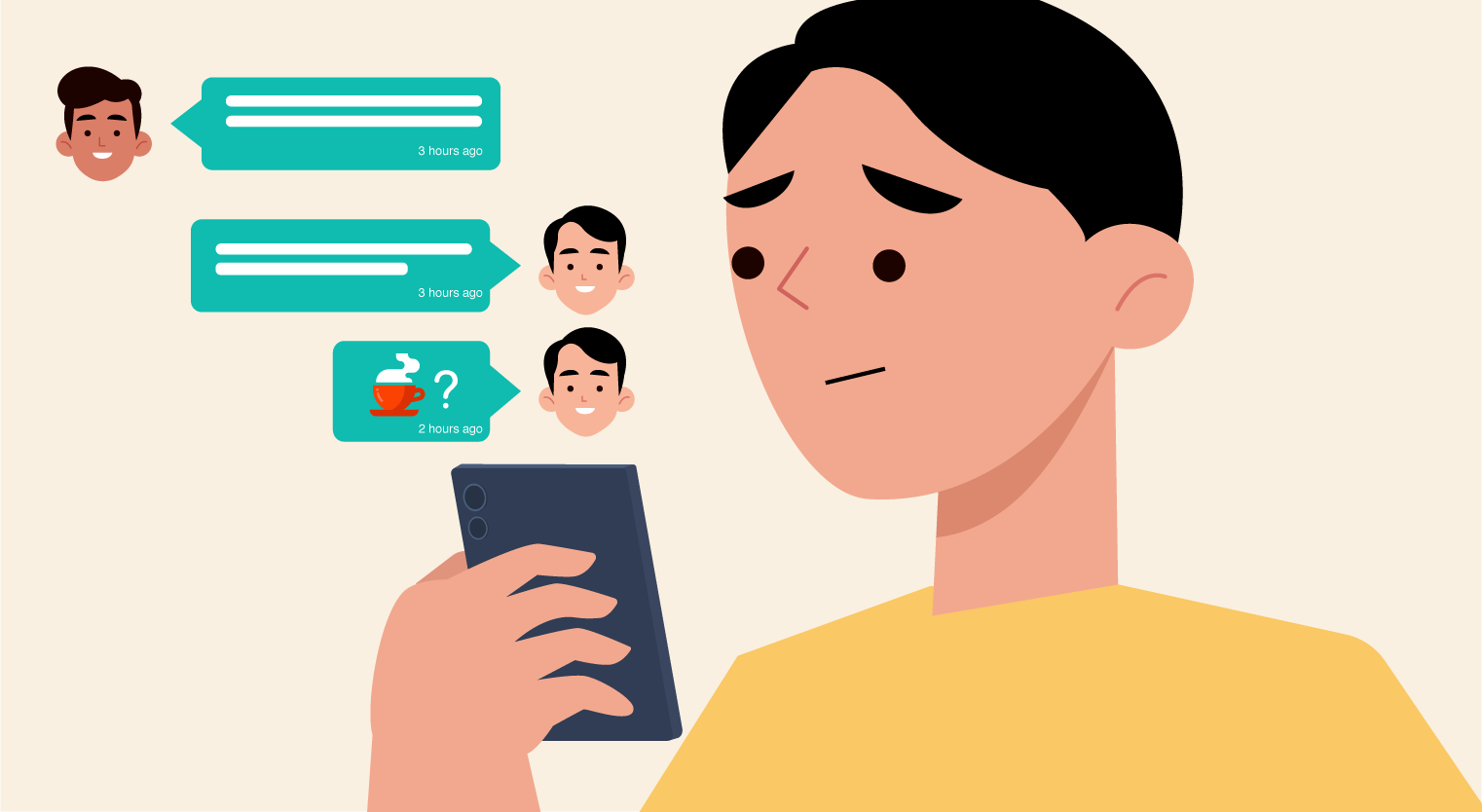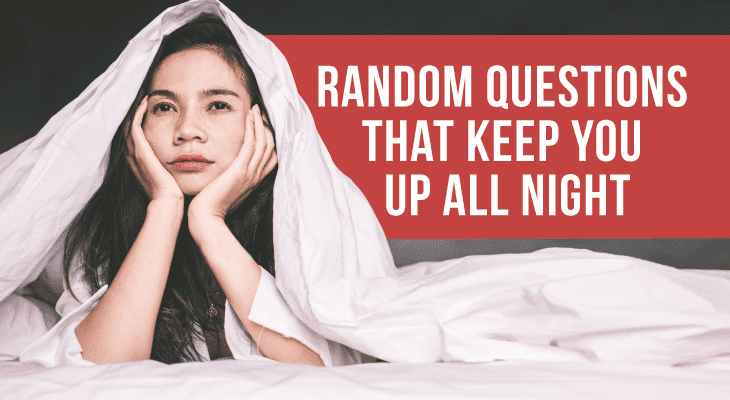What Does Your Attachment Style Say About Your Friendships?
Did you know that your attachment style can affect your friendship? Find out what’s yours here and how you can have a healthy relationship.
Updated 25 May 2022

Every friendship dynamic is different and whether you realise it or not, the way you respond to your relationships has a lot to do with your attachment style.
Derived from the Attachment Theory, psychologist Mary Ainsworth believes that our attachment style has a lot to do with how we connect with our caregivers when we were children. She discovered this through an experiment called Strange Situation where she’d leave children in a room unattended without their parents and record their reactions.
From this, Ainsworth reported four major styles of attachment — secure, anxious-preoccupied, dismissive-avoidant and fearful attachment. These attachment styles are predominantly used to describe personality traits but studies have found that it can also affect your friendships.
So, which is your attachment style? Let’s take a closer look at the different types and how it can affect your friendships.
#1. Secure attachment

According to trauma therapist, Shannon Thomas, a person with a secure attachment style is capable of forming nurturing friendships and working through conflicts that arise. If you’re someone with this attachment style, it means that you recognise your values as a person as well as your friend’s and you understand boundaries that come within friendships. You’re not one to take things personally if your friends cancel plans last minute.
Secure attachment sounds like…
“I’m okay with allowing myself to be vulnerable in my friendships and practise effective communication to solve conflicts.”
How does this affect your friendships?
As someone with a secure attachment style, you have a good sense of assurance about yourself that allows you to form a trusting and lasting relationship with anyone. You’re the kind of person who reaches out to connect with people but at the same time respect their boundaries. Your friendships are healthy and it’s unlikely for you to have any resentment or repressed feelings because you prefer to seek out social support and share them with your friends.
Essentially, secure attachment style is the ultimate goal for any person to have. So, if you identify yourself with this style, you should keep it that way!
#2. Anxious-preoccupied attachment

Do you find yourself feeling anxious when a friend doesn’t text you back immediately? Are you upset when someone cancels on you at the last minute? If your answer is yes, you may have an anxious attachment style.
As someone with this attachment style, you likely struggle with big emotions and anxiety over your friendships. You have a tendency to be attuned to your friends’ needs but rarely take in account of your own. Not to say that you have low self-esteem, but you depend highly on other’s assurance to feel loved and cared about. So, if your friend fails to respond to your texts, you’ll take this personally and blame yourself for their behaviour.
Anxious-preoccupied sounds like…
“I want to have close relationships but I worry my friends don’t value me as much as I value them.”
How does this affect your friendships?
When it comes to forming close friendships, you often worry that people might not reciprocate your feelings. However, when you do form a safe and secure friendship, you tend to sabotage this idea by creating conflicts in your head that your friends might not like you. This can create a rift in your circle and would put the friendship on its last leg. Seeing them hang out with other people makes you feel like you’re not cared for enough, which leads you to become clingy, jealous and possessive over your friendships.
Your history of friendships is always a roller-coaster ride but this doesn’t mean it needs to remain this way forever. An important way that you can help yourself is to regulate your emotions when you’re faced with situations that make you anxious. Ask yourself if you’re feeling unreasonable or better yet, talk to a third person to help you distinguish if your actions are valid.
PRO TIP
Does these type of theories interest you? Explore more with a degree in Psychology.
Apply for university with EduAdvisor
Secure scholarships and more when you apply to any of our 100+ partner universities.
Start now#3. Dismissive-avoidant attachment

When you think of someone with a dismissive-avoidant attachment style, you might imagine an antisocial person who doesn't have any friends. In reality, they’re actually the complete opposite.
People with this attachment are actually pretty happy with themselves. They can be social, easy-going and generally fun to be around. However, they’re also highly independent and self-reliant. If there’s one thing that’s their kryptonite, it’s being too close or personal with people because the vulnerability makes them feel uncomfortable and suffocated. They’ll emotionally disconnect from their feelings when they feel themselves getting too close with others.
Dismissive-avoidant sounds like…
“I am self-sufficient and constantly want space away from my friends. I often find myself fearing commitment.”
How does this affect your friendships?
As someone with a dismissive-avoidant attachment style, your social bonds always remain on the surface because of your struggles with trust and intimacy. This prevents you from making deep connections with your friends. When it comes to social support, you tend not to ask for help from others even though you know you have too much on your plate.
What you can do with this attachment pattern is to slowly get in touch with your feelings and understand what it is about intimacy that makes you uncomfortable. Open up more to your close friends, share your thoughts and even ask for help once in a while. In time, you’ll manage to overcome your trust issues and achieve a secure attachment style.

#4. Fearful-avoidant attachment

Fearful-avoidant attachment (or sometimes called disorganised attachment) is a mixture of anxious and dismissive. The only thing that distinguishes them all is that this attachment style actually craves for intimate friendships.
If you identify with this attachment style, you’re constantly bouncing between wanting to be close and fearing rejection. Due to your inconsistencies, you come off as detached and distrustful which prevents you from connecting with strong and secure people — even though your behaviour comes from a place of fear.
Fearful-avoidant sounds like…
“I want to develop personal friendships but I worry that I'll get hurt if I allow myself to get too close.”
How does this affect your friendships?
You’re always in conflict with someone in your circle even if you don’t mean to. For instance, you miss hanging out with your friends but when you see them, you end up picking fights. Your unpredictable moods and whims make it difficult for your friends to stay connected with you. Ultimately, your inability to be mutually vulnerable with your friends can strain the relationship and prevent you from making meaningful friendships in the long run.
Even so, you can still attain a secure attachment style with a few tweaks. Understand that your emotions may not be an accurate feedback about what is going on in your friendship. The distress you feel may have been a projection or simply a trigger. But that doesn't determine the reality of the relationship. Practise setting a healthy boundary about closeness and intimacy with your friends so they know what are your triggers and where you stand in this dynamic.
Not sure which is your attachment style? Take the quiz here! There’s no question that our earliest relationships with our caregivers play a role in development — especially in our adult life. By getting a better understanding of the role of attachment, we hope that you’ll know how to make better connections and build healthy friendships with others.






